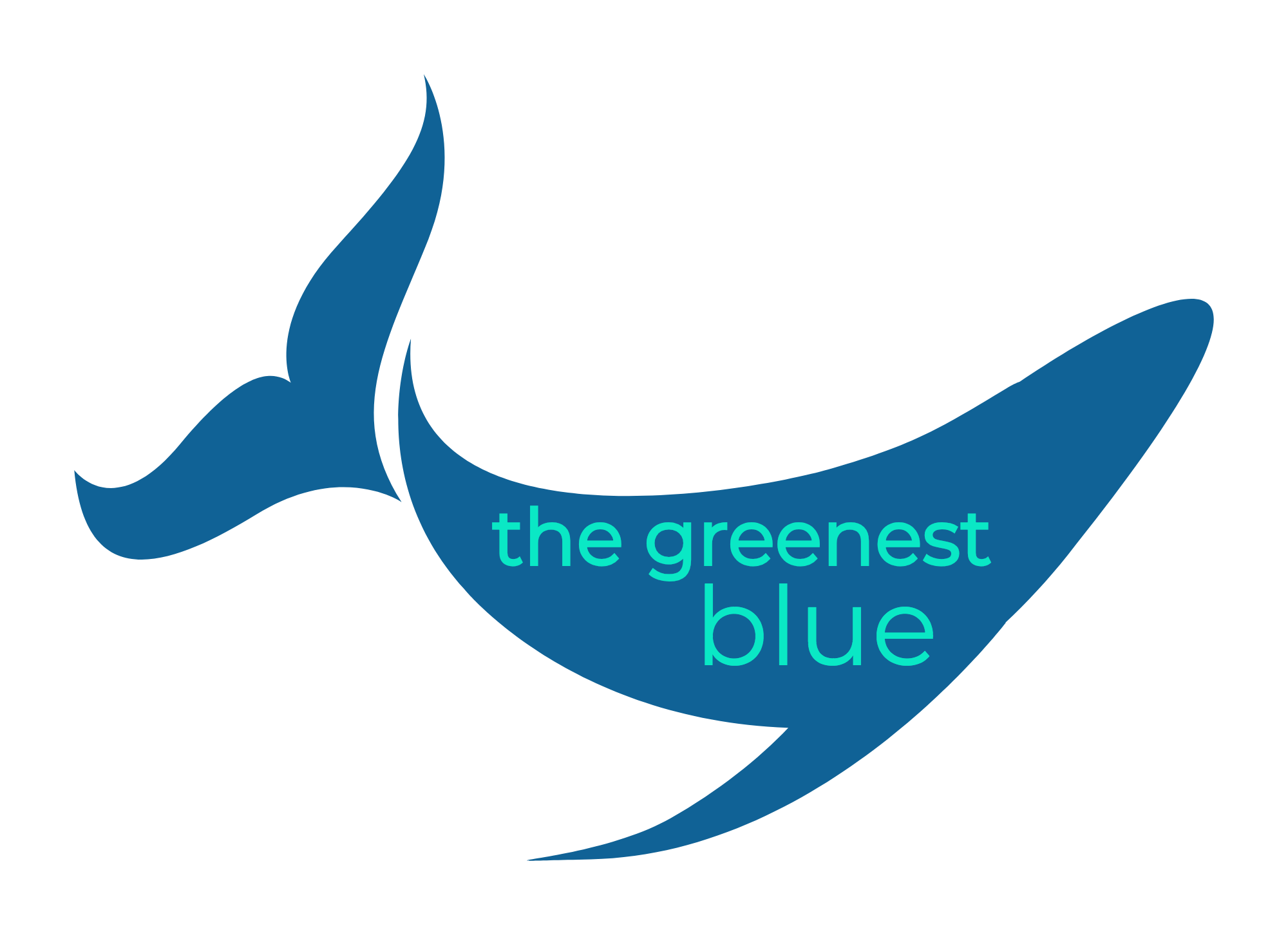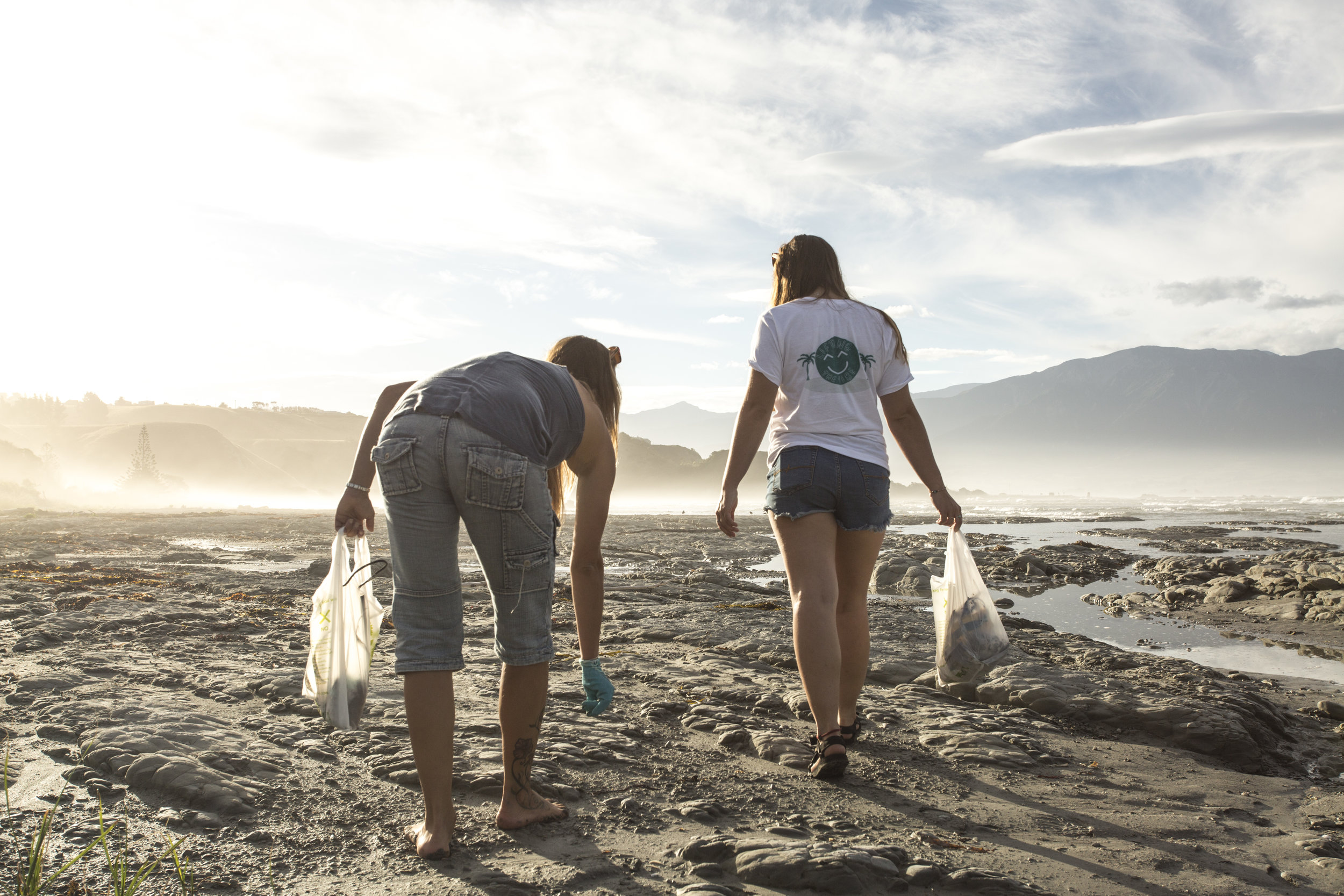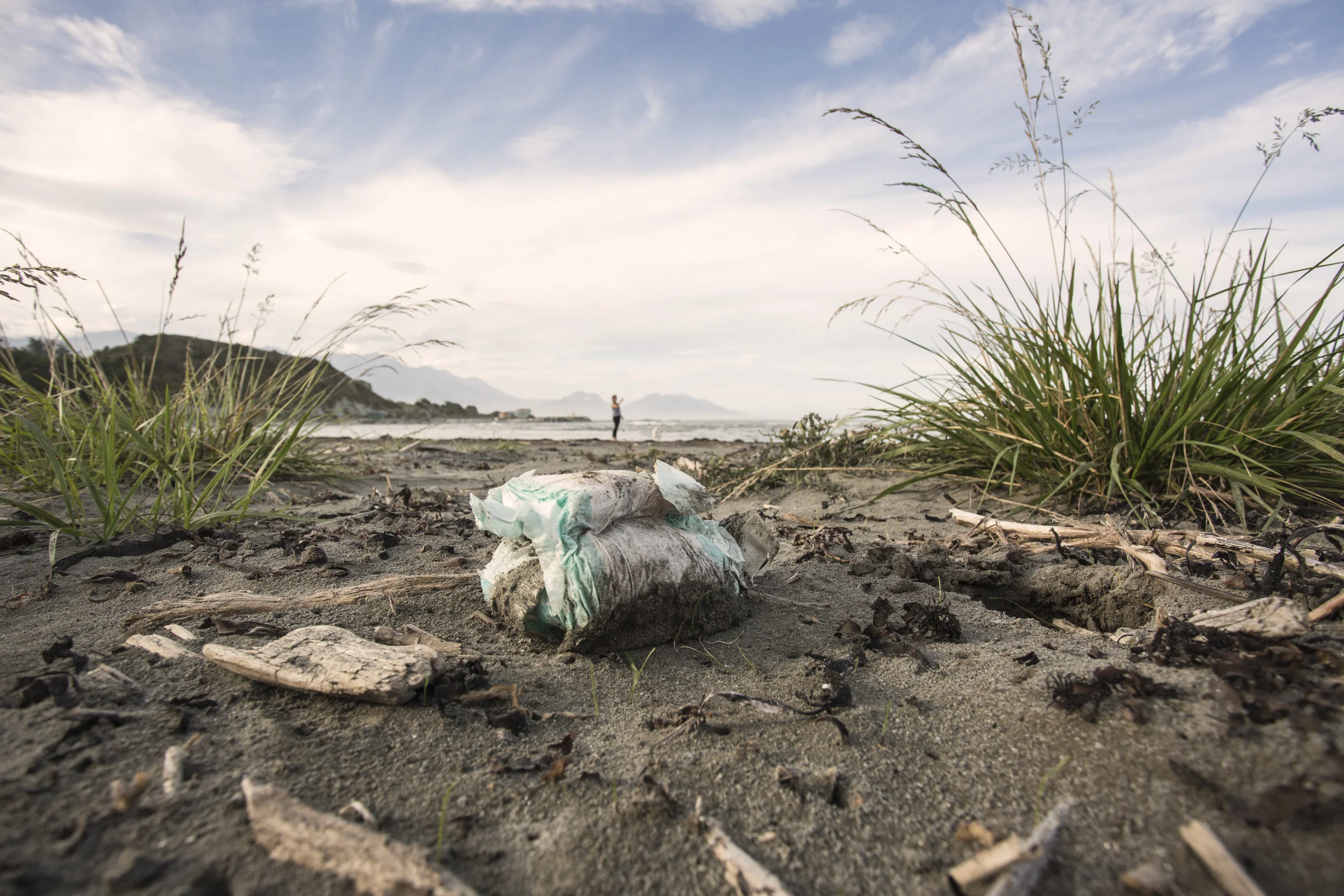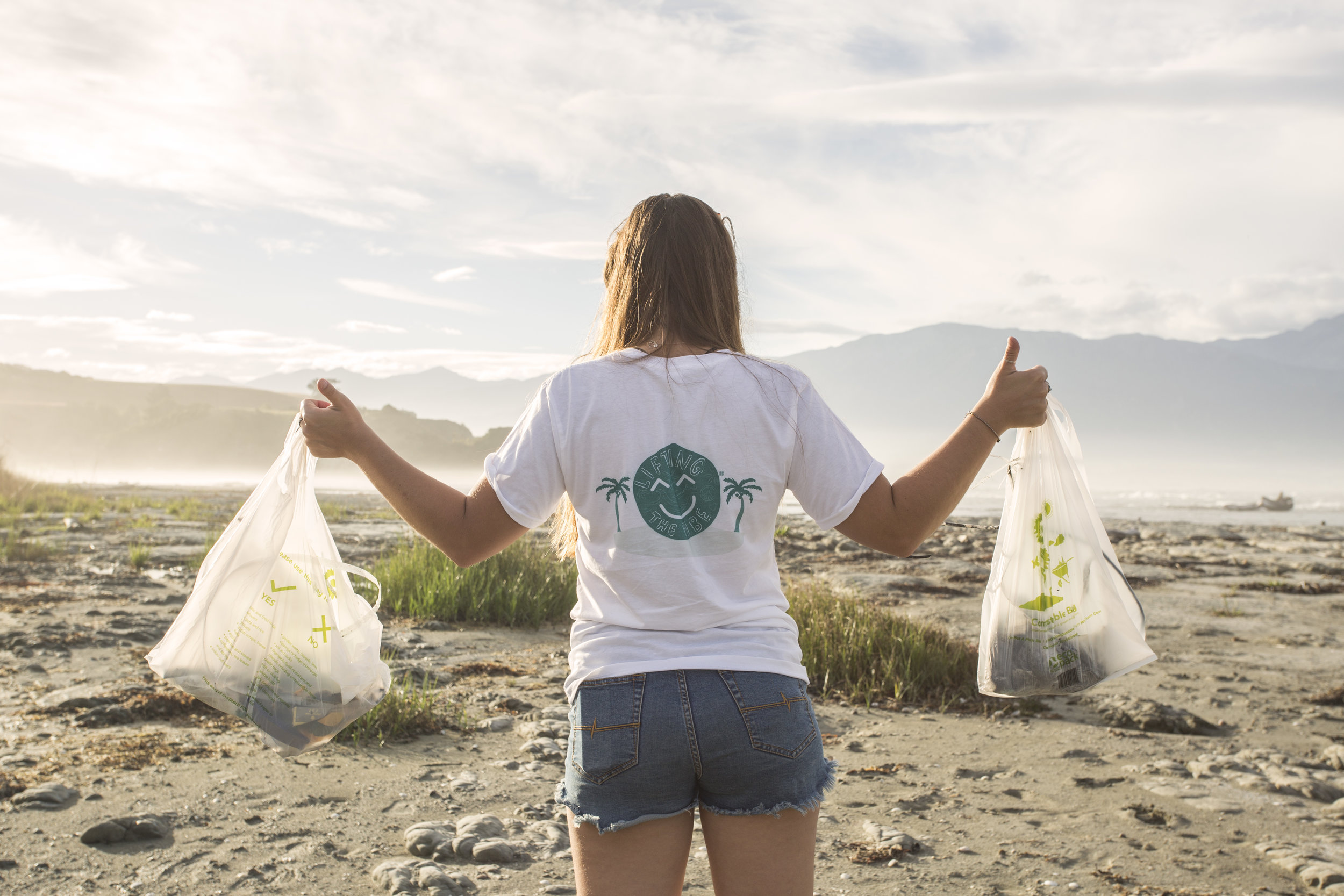Think Globally, Act Locally: A Kaikoura Beach Clean-up with Raglan Coconut Yoghurt
Our ocean is turning into a plastic soup. All of that natural marine beauty – the rainbow coral reefs, the frolicking dolphins, the meandering whales, the lurking sharks and mysterious sea creatures of the deep sea – it's all in trouble. Plastic is a relatively new invention (1907) that has wasted no time in simultaneously poisoning our world and "simplifying" many aspects of our lives. It's become integrated into our daily lives; the convenience of plastic and human society are inseparable at this point. There's some truly scary statistics out there. Over 77% of the rubbish in the sea is plastic. By the year 2050, there will be more plastic in our seas than fish by mass. Shoppers use approximately 500 billion single-use plastic bags per year, which translates to approximately 1 million bags per minute across the globe. Plastic constitutes approximately 90 percent of all trash floating on the ocean's surface, with 46,000 pieces of plastic per square mile. 100,000 marine creatures die each year from plastic entanglement - and these are just the ones that are found.
It is scary, all of this talk of pollution and plastic. But it's also a perfect launching point for motivating others to get involved in conservation. The question to ask is what can we do about it? The first step of involvement is often the most simple, and always the most important. Start small. Think: a team beach clean up. My team at Dolphin Encounter Kaikoura recently partnered with Raglan Coconut Yoghurt to tackle the very global problem of plastic pollution in a very local way. We conducted a beach clean-up at two of our most popular beaches, South Bay and Jimmy Armer's. After the clean-up, we made sure to sort through the mounds of rubbish, recycling when appropriate, and got a sense of which items and materials were the biggest culprits. You guessed it: plastic was the biggest bad guy.
The beach clean was a really simple way to get my work community involved in environmental conservation. The amount of stuff, and the variety, we found was pretty eye-opening and it was so satisfying to snatch those bags/bottles/nappies/cans/hooks/plastic bits off the beach and dispose of them properly. I can't wait to hold more beach cleans and recruit involvement from the local schools and community members. You'd be surprised how many people are keen to get involved once someone takes the reins of the project and runs with it.
I really wanted this post to empower anyone, anywhere, to get involved in this ocean conservation movement. How can you help? No matter where you are in the world, land-locked or coastal, you can organize your own beach/park/road clean-up. Start small. Get your friends together. Grab some biodegradable bags and gloves. Pick a time and place. And go for it. Make it fun! Is there anything better than enabling yourselves and your friends to take care of the waterways and coastlines that you love?
Do it for the big blue.
Raglan Coconut Yoghurt is an amazing small business that makes delicious dairy-free yoghurts and supports a variety of environmental causes; they certainly use their business as "a tool for good." They offered to support our beach clean by sending along some biodegradable bags and gloves, and a variety of coconut yoghurts for the whole team to enjoy. If you haven't tried their product, head to the supermarket and get your hands on some now. You won't regret it. It's absolutely the best yoghurt I've ever tasted, dairy-free or not.
For more ideas on how to help with the plastic-free oceans movement, check out my post on how to reduce single-use plastics in your life.
All photos courtesy of Fiona Wardle Photography.





